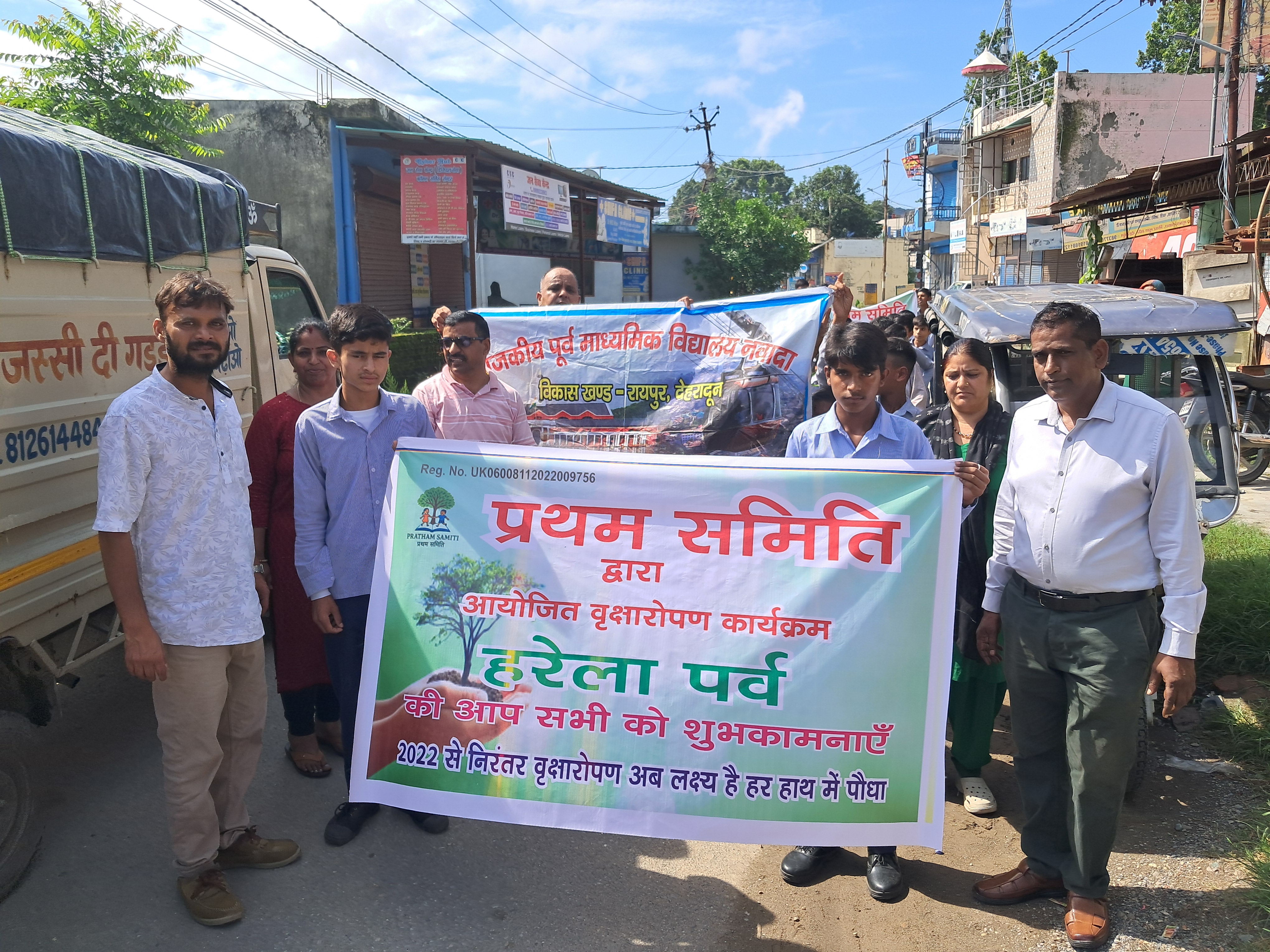Harela, The Hindu Festival...
Harela is a Hindu festival celebrated in the Indian state of Uttarakhand and in some regions of Himachal Pradesh. This festival is very popular in the Kumaun region of Uttarakhand, and is celebrated by the name Harela (हरेला). This name is used in some places of Garhwal but, it is not commonly used, as the festival is celebrated as Mol-Sankranti (म्वोळ-संक्रांति) or as Rai-Sagrān (रै-सग्रान)[citation needed]. It is called Hariyali/Rihyali in Kangra, Shimla and Sirmour regions, and Dakhrain in Jubbal and Kinnaur regions of Himachal Pradesh. This festival is celebrated on the first day of Shravan-Maas (Shravan-Sankranti/Kark-Sankranti), as per the Hindu Luni-Solar calendar. This festival marks the onset of the Rainy-Season (Monsoon). They pray for a good harvest and prosperity. Harela means "Day of Green", and Agriculture-based communities in the region consider it highly auspicious, as it marks the beginning of the sowing cycle in their fields. Multiple Kauthigs/Thols/Melas (Fairs) are also organized at this festival.
Wikipedia Information...
Plantation Program
Plantation Programs
Since July 2022, Pratham Samiti has made environmental protection a top priority by launching a large-scale tree-planting and public awareness campaign. Our first target was to plant 1,000 saplings, which we successfully achieved on time with the support of volunteers, schools, and the local community. This initiative has gone beyond simply planting trees—its focus has been to create a deep understanding among people about the importance of trees, their care, and conservation. From 2023 onward, we began celebrating the traditional Harela festival as “Harela Mahotsav.” During this festival, month-long plantation drives are organized across schools, parks, government premises, roadside areas, and rural locations. Special workshops and rallies are also held on tree care, rainwater harvesting, and biodiversity conservation for students and the general public. These efforts have not only added thousands of new trees to the city but have also strengthened the community’s sense of environmental responsibility. Future Plans By 2026, Pratham Samiti aims to plant at least 10,000 additional trees and strengthen the “My Tree, My Responsibility” campaign to ensure their regular care. We plan to establish Eco-Clubs in schools, where children will “adopt” trees and look after them year-round. Considering the challenges of climate change, we will prioritize planting medicinal plants, fruit-bearing trees, and native species to preserve biodiversity. There are also plans to set up mobile nurseries and community plant hubs to distribute free saplings. Pratham Samiti believes that continuous plantation and awareness are the keys to a green, clean, and climate-resilient Dehradun.